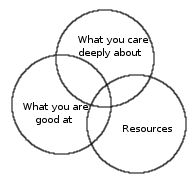Ashish Nanda

Jim Collins, dicussion of his Good to Great monograph on service organizations

- Staff loyalty: satisfaction
- The first thing the leader should do is create a good work environment. Satisfied staff leads to loyal staff. Loyal staff creates a good client experience.
- Discussion of Ashish’s paper that hiring stars is dangerous:
- Chose stock analysts to observe, because if anyone carries the skill within the person it is a stock analyst.
- Questions
- Who moves more, stars or non-stars? Non-stars.
- Who moves more, new stars or long-time stars? New stars.
- Non-stars move 2x more than new stars who move 2x more than stars.
- What happens to stars’ performance when they move? Goes down.
- What happens to the performance of other people in the department the stars go to? Goes down.
- How does the market react to hiring a star? Drops.
- A star is a star not just because of themselves, but because of the platform, the background.
- When do stars’ performance drop the most: When they are brought in to strengthen a department, create one, or replace someone? When they are brought in to strengthen, because the platform is not theirs.
- Status is somewhat a proxy for platform, so if you are a second-tier organization you can’t just hire a star from the first tier.
- “Hiring a star is like an organ transplant.” Post-hiring integration is 90% of the contribution to success. It is important how you integrate them into the organization.
- When hiring stars:
- Should hire the team around the stars. (Hiring this way had the least impact on performance)
- Always better to start something new than to hire someone to strengthen.
- Strategies:
- Grow your own stars and do everything to keep them.
- Take stars from everywhere, give them lots of satisfaction.
- Develop people, don’t satisfy them, recognize that the best will leave.
- Strategy #1 consistently outperforms the others.
- In a really good service organization, when people leave, they leave as an ambassador. Really good service organizations spend as much time (or more) helping people leave. It is important that they leave with goodwill toward the organization.
Jim Collins, dicussion of his Good to Great monograph on service organizations
- Lots of people think churches should be run like a business.
- This is wrong: most businesses are average. If we import business ideas, we import mediocrity.
- Discipline is a trait of greatness. It is not a trait of business (many are undisciplined).
- Each sphere has different outputs (stock price, conversions). The bridge is the language of greatness.
- There is an assymetry between social and business organizations
- In business, money is both and input and an output. In the social realm, it is not an output.
- Thus, measuring output by business variables is measuring an input variable.
- Ask what would make us more successful?
- People usually say “you can’t measure success”. That is undisciplined.
- Ask "what would be lost if your church were to cease to exist?"
- You may not be able to measure this quantitatively. But you can look at indicators. Kind of like a trial: can you convince 12 skeptical jurors that you are guilty of improving?
- The goal is not being great. The goal is to be better tomorrow than today.
- Power in business is concentrated in one person, so they can simply declare a decision.
- Power is the social sector is scattered. Need consensus.
- The consensus decision is rarely the right decision.
- The key is to architect the conditions so that consensus is right.
- The really good social leaders are not creating consensus, they are architecting conditions.
- Hiring in the social sector:
- The not-great companies set vision first, then get people.
- The great companies get the right people, then set the vision.
- In mission-driven organizations, the goal is too important to make the wrong decision.
- The best way to find if you have the right person is to work with them (i.e. hire from within).
- The goal is to find someone who is so passionate that they wake up motivated.
- “Just make sure I am unencumbered and I will perform anyway.”
- Someone is a real leader when people follow them when they have the option not to.
- Building something great is not a function of your circumstances, it is a function of your discipline and your choices.
- The best-performing stock from 1970 - 2002 is Southwest Airlines. If you can do it in the airline industry, clearly circumstances are not a limiter!
- Everyone has a reason why they can’t be great.
- Building greatness is like a flywheel: massive effort at
the beginning.

- Resources is the key for churches.
- In absence of rational capital markets, a “brand” is what generates resouces: a reputation for delivering consistently great results.
- “Ultimately, life is not what you achieve, but what you contribute.” (Collins)